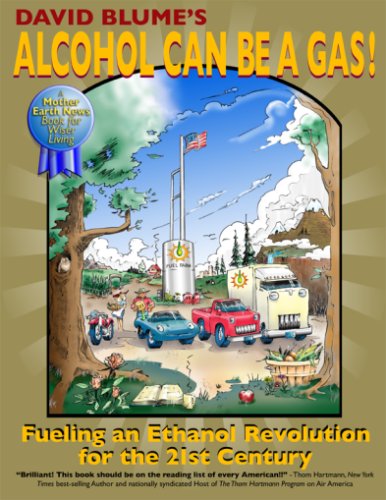David Blume's appearances on Coast to Coast AM radio with George Noory
Biography:
David Blume has been at the forefront of alternative fuel technology since the 1970s, when he was a member of the Mother Earth News Eco Village alternative energy team. He teaches people how to produce and use low-cost alcohol fuel and he wrote and hosted the 10-part PBS series Alcohol As Fuel. In addition, Dave is the Executive Director of the International Institute for Ecological Agriculture. He also consults for governments, farmers, companies, and others interested in turning waste into fuel and profitable products.
Most Recent Show:
May 31, 2010: David Blume discusses the BP Oil Spill and alcohol solutions.
Download Here
Past Shows:
|
|
Alternative Energy |
| Monday March 2, 2009 |
Alternative energy advocate David Blume shared updates on alcohol fuel and related topics during the second half of the show. First hour guest, author Marc Seifer, spoke about the life and work of Nikola Tesla, and astronomer Phil Plait commented on the near miss asteroid in the second hour. ... More
Host: George Noory
|
|
Alcohol Fuel Advantages |
| Thursday November 13, 2008 |
An expert in alternative fuels and sustainable agriculture, David Blume discussed the advantages of using alcohol-based fuels, which he said are 98% pollution free. In addition to making us less dependent on foreign oil, using such fuels can help reverse global warming-- the increased growth of plants used to make the fuels takes out CO2, he explained. Many different plant sources can be used to make alcohol. Corn, he noted, doesn't have that high of a yield compared to a plant such as sweet sorghum, which generates 1,000 gallons per acre. Reports that growing corn for making ethanol was leading to starvation were untrue, said Blume, who pointed out there was actually a surplus of corn, and the U.S. only uses 5% of its farm lands on corn.The oil companies have employed multiple strategies to curtail the use of alcohol-based fuels, such as buying corn futures at high prices, and claiming alcohol can harm car engine parts, he stated. Cars can actually run on up to 50% alcohol w ... More
Host: George Noory
|
|
Generations & the 4th Turning |
| Tuesday September 30, 2008 |
Historian and speaker Neil Howe discussed his work on generations and how they shape history, as well as the twenty year cycle of crisis facing the U.S. He cited different archetypal generations that tend to repeat in the same order, shaping American history since the 17th century. Currently we have:'G.I.s' (born from 1901 to 1924),'Silent' (born from 1925 to 1942),'Boomers' (1943 to 1960),'Gen X-ers' (1961 to 1981), andMillennials (1982 and beyond).Each of these generations embodies different characteristics that are a product of their time, and what preceded them, he explained. Each group turns a corner on the generation before them, and Howe has categorized four repeated cycles or "turnings," that each last for around twenty years. We are in the midst of the 4th Turning, a time of enormous public risk and upheaval, said Howe. Among the predictions he and co-author, the late William Strauss made back in 1997 about the 4th Turning: fiscal crisis tax rebellion global ... More
Host: George Noory
|
|
Alcohol-Based Fuels |
| Thursday July 17, 2008 |
Ecological biologist David Blume discussed the importance and benefits of alcohol-based fuels, and how the petroleum industry has suppressed their development. Some of the earliest cars such as the Model T were flex fuel (running on either gas or alcohol), and Henry Ford was an advocate for alcohol fuel. However, he was opposed by John D. Rockefeller who pushed for Prohibition, which stopped the manufacture of alcohol for any purpose, Blume detailed. Cheaper than gas, alcohol is a superior fuel, as it leaves no carbon behind, engines last longer, and it can free us from foreign dependence, he noted. There are some twenty different crops that can produce alcohol, and many of them, such as sugar beets, yield more alcohol per acre than corn. Most cars can actually run with up to 50% alcohol in their tanks, without using any kind of conversion device, Blume declared, and kits can be added to vehicles for less than $300. People can get permits to create home distilleries to brew th ... More
Host: George Noory
Please report questions or problems with website to webmaster


